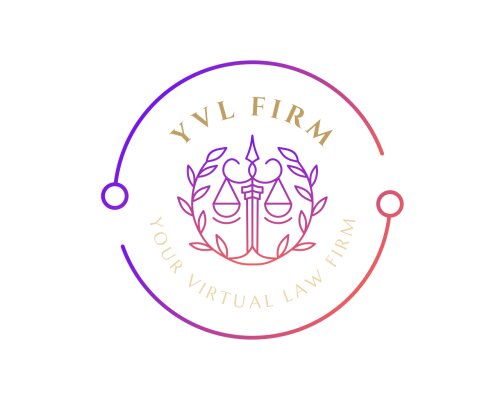Best Guardianship Lawyers in Jamaica
Share your needs with us, get contacted by law firms.
Free. Takes 2 min.
Or refine your search by selecting a city:
List of the best lawyers in Jamaica
About Guardianship Law in Jamaica
Guardianship in Jamaica is a legal framework designed to protect the interests of those who are unable to care for themselves due to reasons such as minority, disability, or incapacity. It involves appointing a guardian who is vested with the legal authority to make decisions on behalf of someone known as a "ward." This arrangement ensures that the financial, personal, and medical needs of the ward are adequately managed. The process is governed by family law as well as specific legislation, which outlines the rights, responsibilities, and procedures for appointing a guardian in Jamaica.
Why You May Need a Lawyer
Seeking legal advice in the field of guardianship can be crucial for several reasons:
- Complex Legal Procedures: The process of obtaining guardianship involves navigating complex legal paperwork and adhering to specific protocols, which can be overwhelming without professional help.
- Disputes: Disagreements may arise among family members or interested parties about who should serve as a guardian or about the terms of the guardianship, necessitating legal intervention.
- Protection of Rights: Legal counsel ensures that the rights of both the ward and the guardian are protected under the law.
- Tailored Advice: Every case is unique, and a lawyer can provide personalized advice that takes into account the specific circumstances of your situation.
- Compliance with Legal Obligations: Lawyers help ensure that the responsibilities and duties of the guardian are fulfilled in accordance with Jamaican law.
Local Laws Overview
In Jamaica, guardianship laws are primarily concerned with the appointment and duties of guardians for minors and incapacitated individuals. Key aspects of local laws include:
- Appointment Process: The courts are responsible for appointing guardians, ensuring the best interests of the ward are a priority.
- Types of Guardianship: There are mainly two types: guardianship of minors and guardianship of adults (usually due to physical or mental incapacity).
- Duties of a Guardian: These include managing the ward's financial affairs, making healthcare decisions, and ensuring the overall wellbeing of the ward.
- Termination or Modification: Guardianship can be terminated or modified under certain conditions, such as when the ward reaches adulthood or recovers their capacity.
- Legal Framework: The Jamaican legal system provides a structure for addressing issues related to guardianship under relevant family law statutes.
Frequently Asked Questions
What is the legal age for a person to be considered a minor in Jamaica?
In Jamaica, a minor is a person under the age of 18.
How is a guardian appointed in Jamaica?
A guardian is appointed by the court following a legal application process where the best interests of the ward are considered.
Can a guardian be someone other than a family member?
Yes, a guardian can be a non-family member if the court determines that this arrangement serves the best interests of the ward.
What responsibilities does a guardian have?
A guardian is responsible for ensuring the ward's medical, financial, and personal needs are met and for making decisions on their behalf.
Is it possible to change a guardian after one has been appointed?
Yes, if circumstances change or if it is in the best interests of the ward, the court can modify or change the guardianship arrangement.
Can guardianship be temporary?
Yes, guardianship can be granted on a temporary basis for specific situations or until the circumstances leading to guardianship are resolved.
What happens when a minor reaches adulthood?
Guardianship typically ends when a minor reaches the age of 18, unless the court has specified otherwise due to incapacity.
What if there are disputes about guardianship?
Disputes regarding guardianship are resolved through the legal system, often requiring intervention by a lawyer or the court.
What if a guardian fails in their duties?
If a guardian is found to be neglecting their duties or acting against the ward's interests, legal action can be taken to have them removed and replaced.
Does a ward retain any rights during guardianship?
A ward retains certain personal rights and, where possible, should be consulted on decisions affecting their welfare.
Additional Resources
For more information and assistance regarding guardianship in Jamaica, consider reaching out to the following resources:
- The Jamaican Family Court: Offers guidance on legal proceedings related to guardianship.
- The Ministry of Justice: Provides general information and support services for people seeking legal advice.
- Legal Aid Council Jamaica: Offers free or affordable legal services for eligible individuals.
- Private Attorney Services: Hiring a lawyer specializing in family law can provide tailored and direct assistance.
Next Steps
If you need legal assistance in guardianship, here's how you can proceed:
- Research: Gather as much information as possible about your specific situation and your legal needs.
- Consult a Legal Professionals: Reach out to a lawyer specializing in family or guardianship law in Jamaica for a consultation.
- Prepare Documentation: Collect all relevant documents, such as identification, medical records, and any existing legal documents relating to the ward.
- Attend Court Hearings: Be prepared to attend any necessary legal proceedings or court hearings as advised by your attorney.
- Follow Legal Guidance:** Strictly adhere to the advice and instructions provided by your legal counsel to ensure compliance with the law.
Lawzana helps you find the best lawyers and law firms in Jamaica through a curated and pre-screened list of qualified legal professionals. Our platform offers rankings and detailed profiles of attorneys and law firms, allowing you to compare based on practice areas, including Guardianship, experience, and client feedback.
Each profile includes a description of the firm's areas of practice, client reviews, team members and partners, year of establishment, spoken languages, office locations, contact information, social media presence, and any published articles or resources. Most firms on our platform speak English and are experienced in both local and international legal matters.
Get a quote from top-rated law firms in Jamaica — quickly, securely, and without unnecessary hassle.
Disclaimer:
The information provided on this page is for general informational purposes only and does not constitute legal advice. While we strive to ensure the accuracy and relevance of the content, legal information may change over time, and interpretations of the law can vary. You should always consult with a qualified legal professional for advice specific to your situation.
We disclaim all liability for actions taken or not taken based on the content of this page. If you believe any information is incorrect or outdated, please contact us, and we will review and update it where appropriate.
Browse guardianship law firms by city in Jamaica
Refine your search by selecting a city.















